The surf park industry is making big strides in 2024. New parks are opening while other long-awaited projects are breaking ground. It’s safe to say the industry has finally found a rhythm and is growing at an increasingly quicker rate.
It’s great news for an industry that is still fairly new. Many leaders in the surf park space today were in an entirely different field ten years ago. However, that’s not true for everyone. Craig Stoddart, the former CEO of The Wave, Bristol, helped make the UK destination a pillar of the industry. He is now focused on consulting and working with other projects to make them a reality. His experience is vital to the industry’s growth.
Surf Park Central spoke with Stoddart about the state of industry, and what newcomers need to know to make their surf park plans a reality.
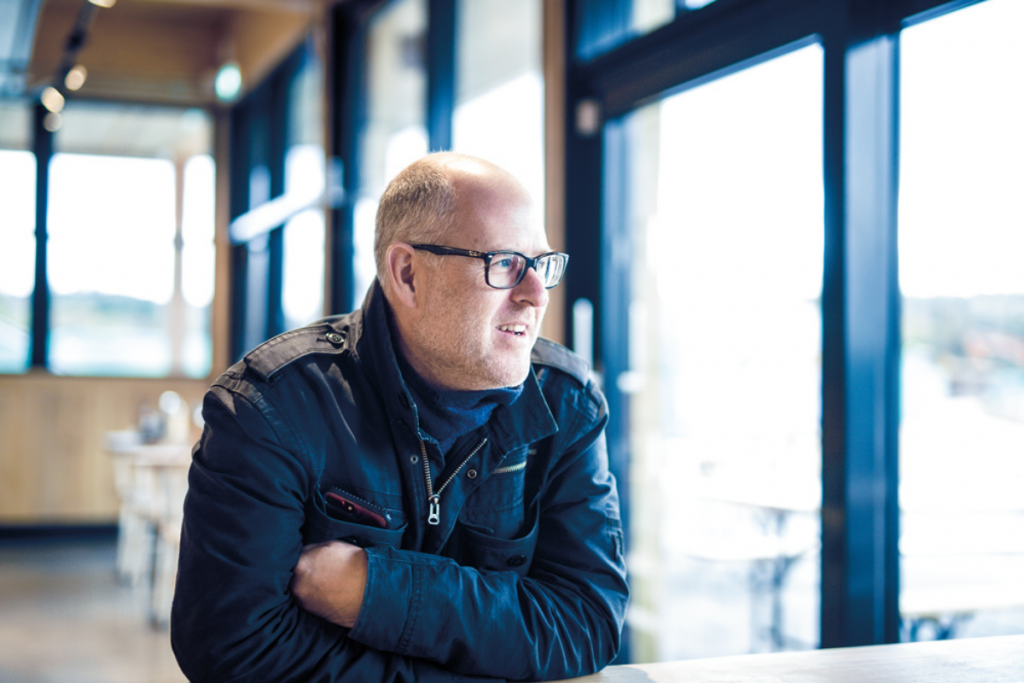
Surf Park Central: What’s one of the biggest struggles surf park projects face today? What advice do you have for making a surf park successful?
Craig Stoddart: I don’t think surf parks suffer from a lack of passion for wanting them to happen. That’s often the starting point for lots of these projects. Selling that passion and that dream is the relatively easy part. Who wouldn’t want to be involved with these amazing projects? That’s why we all want to get involved. The difficulty comes with the practicalities of how do you make it happen.
I often hold my hand up on this stage and say there are five things you need to build a surf park.
One, you need land. Two, you need the route to the planning permissions, the licenses, the permits, etc. for that land to be able to deliver it. Three, you need a technology partner who can provide a compelling business case to be funded with a proven technology. Four, you need a management team who know how to deliver it and have got the capability and expertise. Only when you get those four things in play is the fifth element possible to complete – the funding. This is split into 2 key phases. The development funding and the construction funding. The development funding is the most difficult phase when you need to acquire the land, get the permits, and contract the technology partner so that the project is derisked enough to secure the construction funding.
It comes down to a few main things, one is getting across the message about what you’re doing and that communication to engage people and get them on board. Nick Hounsfield, the founder of the Wave, was great at this. The second thing is a really good commercial understanding of what investors are looking for.
For that initial phase, the development capital phase, if you are an individual rather than a professional developer, most people go out to their friends and their family initially. Perhaps crowdfunding or pitching to local high net worth individuals. It’s very difficult to fund unless you own the land you’ve got an asset that you can leverage against so it’s about having enormous resilience in being able to chase down those funds and telling the story and engaging people with the journey that you’re on. That sort of commercial element at the end is really critical as well. You have to be able to explain how you’re going to mitigate all the risks. It might be the construction risk. It might be the technology risk. It might be the commercial risk around the business plan. Ultimately without all of those things properly understood, you’re not really going to get anywhere.
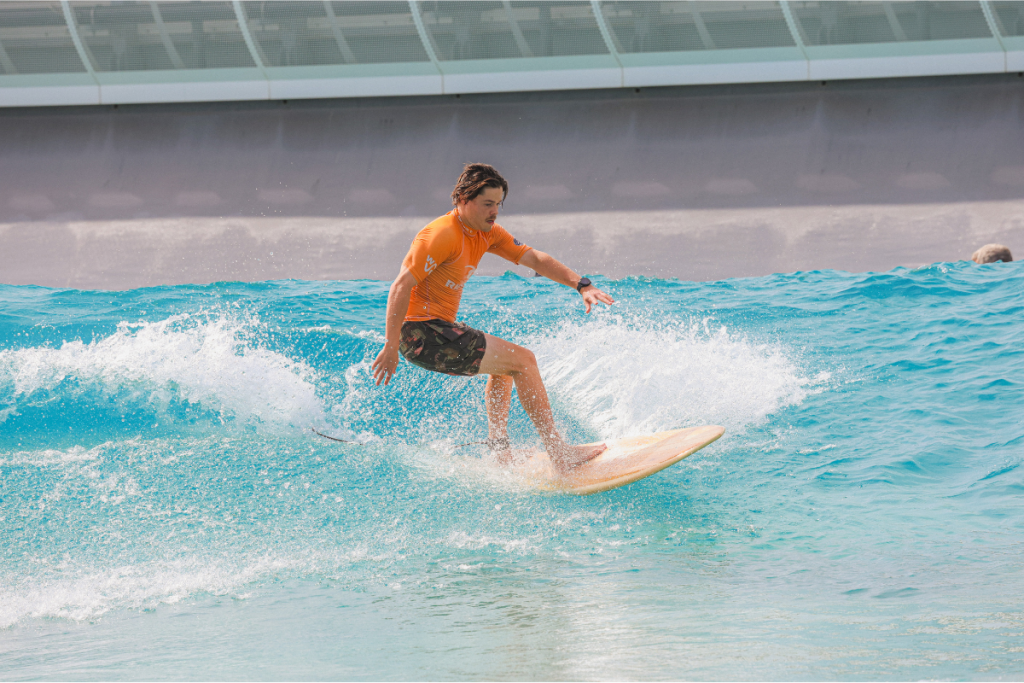
Surf Park Central: You’ve already touched on this but what advice would you give anyone who’s just starting out with their project on the ground level?
Craig Stoddart: I think it’s probably diving into a little bit of those five things. So, let’s start off with the land.
Obtaining the Land
When you’re looking at land, a lot of people are focused on trying to do this near big populations. So, you’re within the conurbation of a big densely populated area. Now, you’re competing against residential and commercial developers who can afford to pay more for the land and value the land higher. If you end up paying the same that they will pay for land, it makes the commercial model for building a wave that much worse. So, it’s a difficult juxtaposition to get right.
What is increasingly looking like the right model is to work with the public authority with land that they’ve got available. They are very keen on the opportunities because it brings a lot of jobs to the area and brings people into the area that are spending money in that location. It also drives a health and well-being agenda. It gives the local community facilities it wouldn’t otherwise have, so it’s viewed very positively by local authorities. So, that’s one good way of finding land. Look at what public land is available.
The other alternative is you really need to think of this as a bigger real estate play. Surf parks on their own are incredibly difficult to make work because the revenue and income generation compared to the capital cost means the payback period is quite long. However, if you put that in the context of a larger real estate play whether that’s hotel developments or resorts or other residential and commercial developments that are going on, what you do there is you provide a footfall for those assets to increase in value. And so the whole equation becomes easier.
Planning and Permits
On the route to the permissions and the planning and the permits that is about assessing where you’re trying to put it and really understanding the drivers locally, the environmental factors that are in there, and what the politics are locally. Understanding what you’re dealing with and how that’s viewed and then handling those objections is part of the journey. There are some targets that have become obvious for these developments. That includes golf courses that are failing, they’ve already got the developed car parks and building structures and have the water infrastructure. There’s quite an interesting opportunity for quarries and waste centers where the reclamation of contaminated land is a really positive thing for the environment. When it’s undeveloped land that’s where you’ll get the most pushback. There have also been a number of developments that have been stopped over water or electricity environmental issues.
Wave Technology
We’re in a really wonderful time with our technology partners. There’s all these technology players who are coming forward and they’re really innovating. Not all of them are tried and tested, and that’s a real challenge for some of them and it makes it difficult for some projects to get funded. There’s no doubt about it, the more proven your technology, the easier you’re going to find it because the funders are almost certainly going to be looking at it and say, ‘Can I see the operating model that makes this work?’
When we were looking at The Wave and trying to raise money we were selling vapor in reality because we couldn’t show anything that would be similar, but now you can and that makes it a lot easier.
In the process of developing your surf park that’s a really critical choice. A lot of the technology development has come from the really core advanced surf market which is trying to produce the ultimate surfing wave. But from a business model perspective, that’s not necessarily the full answer. The answer is more of a variety of waves that you can have from all your complete novices all the way through to the elite surfer and everything in between. So, it’s really critical that you understand your local market and what it’s going to be.
Capacity is also really critical. It’s really critical that you can generate enough revenue to create the cash flows to pay back the capital expenditures. If you can’t do that, you’re not going to get the funding closed.
Management Team
The management bit requires a number of skills that are really needed to be part of the team. That vision that you’re trying to deliver and that ability to communicate and create that story is one part of it. You’ve also got to convert that vision into reality, by having people who understand how to close funding deals, how to operate and build a team, and create a really high-performance culture. Understanding sales and marketing and being able to figure out how we’re going to get the people in the door. All of those elements are absolutely critical to the end result. So, that whole piece is how you get to build it.
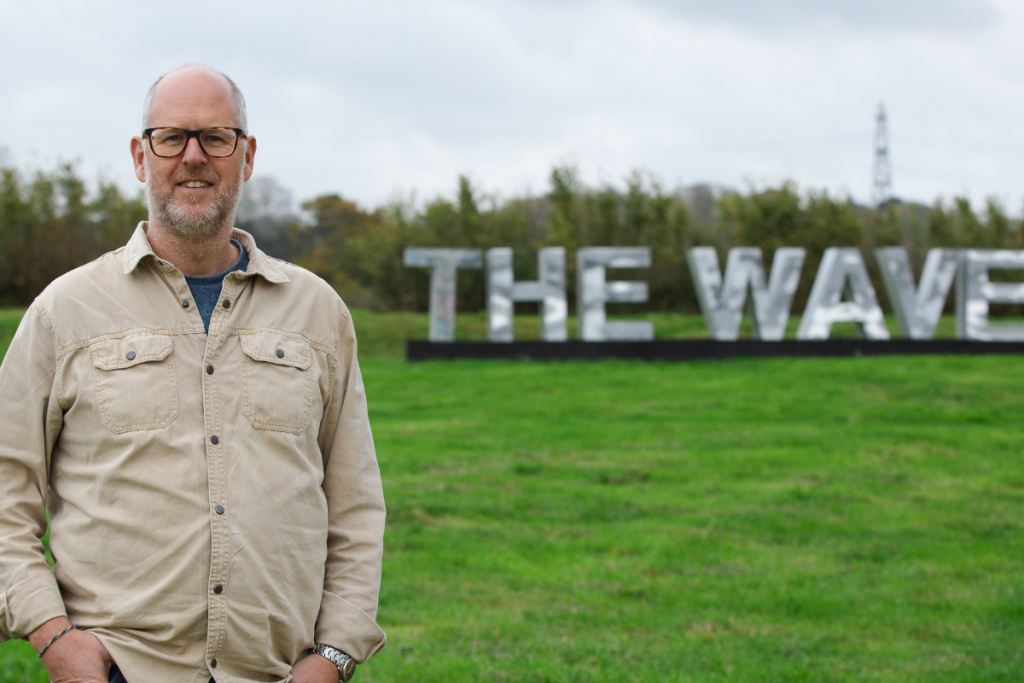
Surf Park Central: Can you tell us a little bit more about your own background and what skills you brought to The Wave?
Craig Stoddart: I’ve never worked in the same industry twice, I’m an accountant in the very dim and distant past. I started off in Investment banking and enjoyed the intellectual challenge but hated the culture. I bought my first business when I was 26, which was a ceramic tile manufacturing business. I viewed this as my MBA. It cost me about the same amount and took about the same amount of time, but taught me a bit more. It failed and I learned a lot from that. Then I built a retail business from scratch. We were sending out two and half a million catalogs a year. It was a catalog, online and physical retail business for children’s furniture. That taught me how to build a business.
I exited that in 2008 just before the financial crash really hit and then I spent about eight years helping businesses dealing with high growth and how to build teams and develop strategies. I helped turn around a couple of very large global businesses. One of those was a global security business which was putting men with guns on boats. It was an anti-piracy business.
One of the businesses I advised during that time was a renewable energy consultancy called Syzygy, and I brought them in later to deliver the on-site solar array at the Wave. I now sit on their Board as an advisor and they advise a lot of the top real estate companies in Europe on how to decarbonize their estates.
I have a big toolbox of skills and experiences across a whole range of sectors. The commonality is being able to develop a clear strategy about where we’re going, build a team, and make sure they understand exactly what they’re doing and how we’re going to get there. Everything I do normally involves some form of investment process, either raising money for the business or selling it, so I have a lot of deal experience.
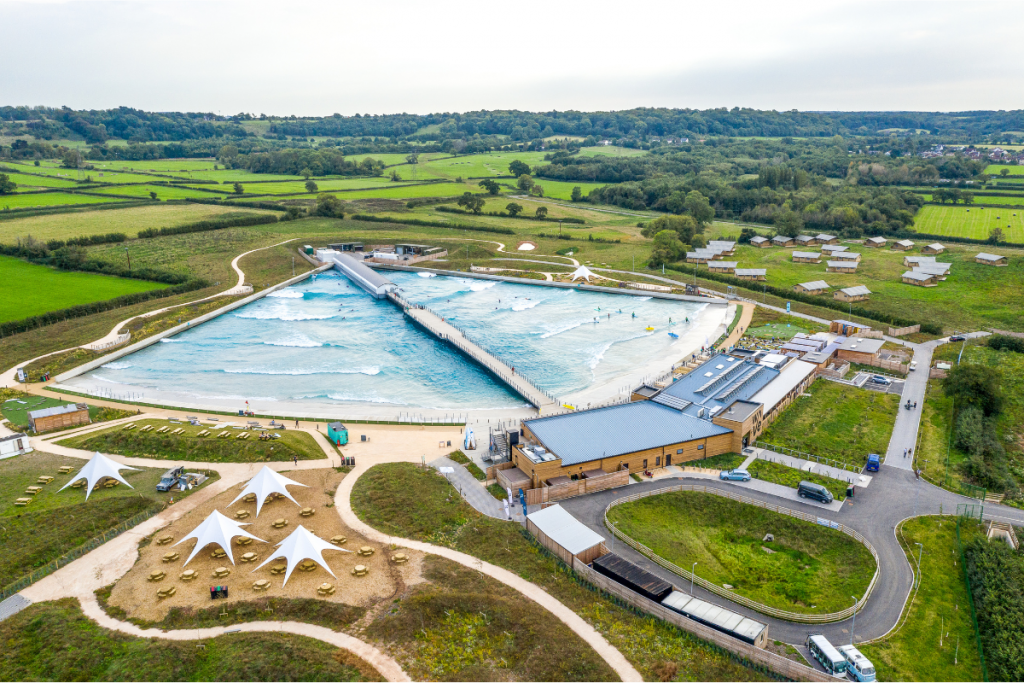
Surf Park Central: As someone who was in the surf park industry for a long time, what has changed? What is easier now than a decade ago?
Craig Stoddart: I think what was very difficult back in the day was understanding what the commercial model was. That’s led to a number of different elements. What does the technology deliver and can it deliver?
So trying to raise your capital on the back of investors asking, ‘Can we come and surf it?’ And they can’t, that’s really challenging. You can do that now because there are lots of surf parks you can surf in.
The other element is there had to be an enormous amount of trust and ability to take risks in those early days on what the commercial model is. What sort of occupancy are you going to get? What sort of prices can you charge? Are people going to come back? All of those things were totally not understood back in the day.
There’s a lot more clarity and a lot more information out there now. I think a lot of the work that Jess (Ponting) and the Surf Park Central team are doing with bringing together that information in the industry and sharing it is really fantastic. The culture in this industry is great around that because the vast majority of times people aren’t really competing on their doorstep with others.
Surf Park Central: How are consultants and others in the industry like yourself helping more surf projects move forward now?
Craig Stoddart: It’s really helpful for developers of new surf parks to lean on that knowledge that some of us have learned along the way and not fall for all the mistakes we have made – and there were a lot!
I’m advising about five or six different surf parks around the world. I’m in the middle of building one in the Middle East at the moment and part of what I’m doing there is effectively overseeing the whole project. This started with assessing the business model, negotiating the technology agreement, and preparing the investment case. With my team, we’re covering the development & construction management and operational development. We are developing the brand and sales and marketing plan as well. The park will be left with a working site with their own operating team and it’s properly operating with all of the health and safety and all of the systems and all of the processes embedded. We had to make all that up four or five years ago.
I think having people who understand that is enormously helpful. These shortcuts will reduce the cost of development and improve the performance of the surf parks. It will ensure a more sustainable surf park in the long term and will spread that knowledge across the industry to allow it to become as successful as we think it can become.
Learn more about developing a surf park by attending Surf Park Summit 2024. Craig Stoddart will be a keynote speaker and a judge in this year’s pitch contest. Register today.





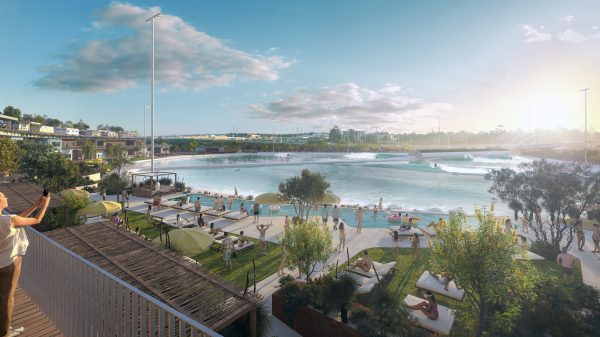
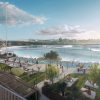

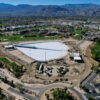
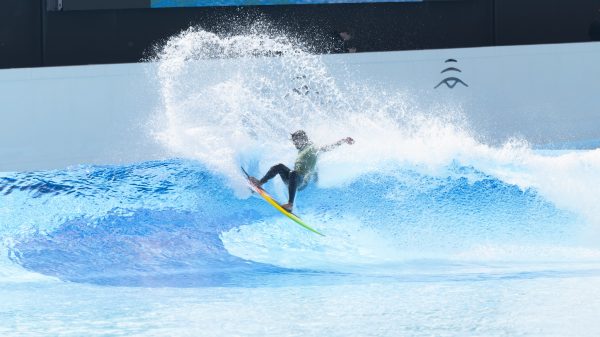

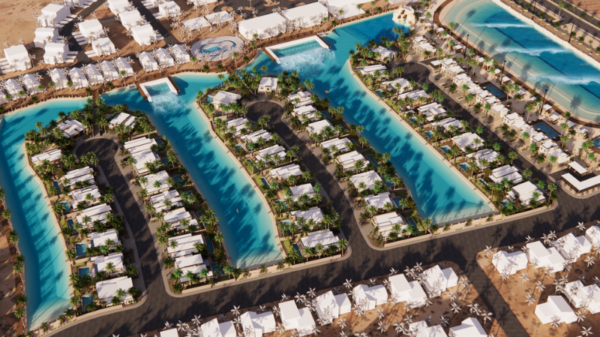

You must be logged in to post a comment Login